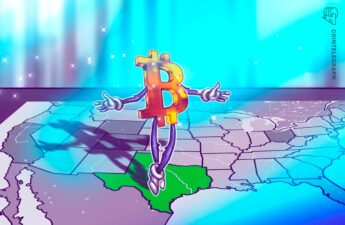Warren Buffett and Bill Ackman are two of the most successful investors in the world, but they have taken opposing views on the bond market in recent months.
Only one can be right. Billionaire investor Bill Ackman says he is shorting US Treasuries. if long-term inflation is 3% not 2%, the 30y Treasury yield could rise to 5.5%. In contrast, Warren Buffett has announced buying positions in 10y US Treasuries. Shorting US 10y bonds seems… pic.twitter.com/X2zSPzJ91Y
— Holger Zschaepitz (@Schuldensuehner) August 5, 2023
Buffett has been buying short-term Treasury bills, while Ackman has been shorting long-term Treasury bonds. Could both of these investors be right?
Warren Buffett is the chairman and CEO of Berkshire Hathaway, one of the world’s largest investment holding companies. Buffett’s worth is estimated to be over $100 billion. Bill Ackman is an American hedge fund manager, activist investor and the founder and CEO of Pershing Square Capital Management, a hedge fund with over $20 billion in assets under management.
U.S. Treasury 1-year yield vs. 20-year note yield. Source: TradingView & Cointelegraph
There is the possibility that short-term and long-term interest rates will move in different directions. For example, if the Federal Reserve raises short-term rates in an effort to combat inflation, long-term rates could fall. This would be good for Buffett, who is buying short-term bonds, but bad for Ackman, who is shorting long-term bonds.
Another possibility is that Buffett and Ackman are simply taking different views on the risk of inflation. Buffett believes that inflation is not a major threat, and that short-term Treasury bills offer a safe haven from market volatility. Ackman, on the other hand, believes that inflation is a serious risk, and that long-term Treasury bonds are overvalued.
Buffett and Ackman will both probably get what they want
There is a possibility that Buffett and Ackman are both right, at least in the short term. Meaning, it is possible that short-term rates will rise while long-term rates fall. This would happen if the Federal Reserve raises interest rates in an effort to combat inflation, but the market does not believe that the Fed will be able to raise rates enough to significantly slow down inflation.
In this scenario, Buffett would benefit from his short-term Treasury bill investment, while Ackman would benefit from his short position on long-term Treasury bonds. This possibility is supported by the fact that the correlation between bond and stock prices has neared a record high in recent months.
 S&P 500 correlation vs. U.S. 10-year Treasury yield (50 days). Source: TradingView
S&P 500 correlation vs. U.S. 10-year Treasury yield (50 days). Source: TradingView
This means that as bond prices fall, stock prices are likely to rise, likely because investors are selling bonds and buying stocks in anticipation of higher interest rates.
When geniuses fail — Could both investors be wrong?
Of course, it is also possible that both Buffett and Ackman will be wrong. That is, it is possible that short-term and long-term rates will move in the same direction. This would happen if the market believes that the Fed will be able to raise rates enough to significantly slow down inflation. In this scenario, both Buffett and Ackman would likely lose money on their respective investments.
Only time will tell how this debate will play out, and there is no easy answer to the question of who is right. Investors should consider the different investment strategies that Buffett and Ackman use. Buffett is a value investor, while Ackman is a short-seller. These different strategies could also have a significant impact on the performance of their respective investments.
What about the impact on crypto markets?
The U.S. Treasury curve, specifically the spread between the 1-year and 20-year note, has significant implications for the broader financial ecosystem, which can indirectly influence the sentiment of Bitcoin (BTC) investors.
A steepening curve, where long-term rates rise faster than short-term rates, often signals expectations of future economic growth and the possibility of rising inflation. In this environment–if both Buffett and Ackman are wrong–Bitcoin could be touted as a hedge against inflation, boosting its attractiveness.
For Bitcoin investors, a flattening curve–meaning, if both Buffett and Ackman are right–indicate concerns about future economic growth and increased uncertainty and volatility in traditional markets. This would push investors to reduce exposure in cryptocurrencies given that most consider it a speculative asset.
This article is for general information purposes and is not intended to be and should not be taken as legal or investment advice. The views, thoughts, and opinions expressed here are the author’s alone and do not necessarily reflect or represent the views and opinions of Cointelegraph.



